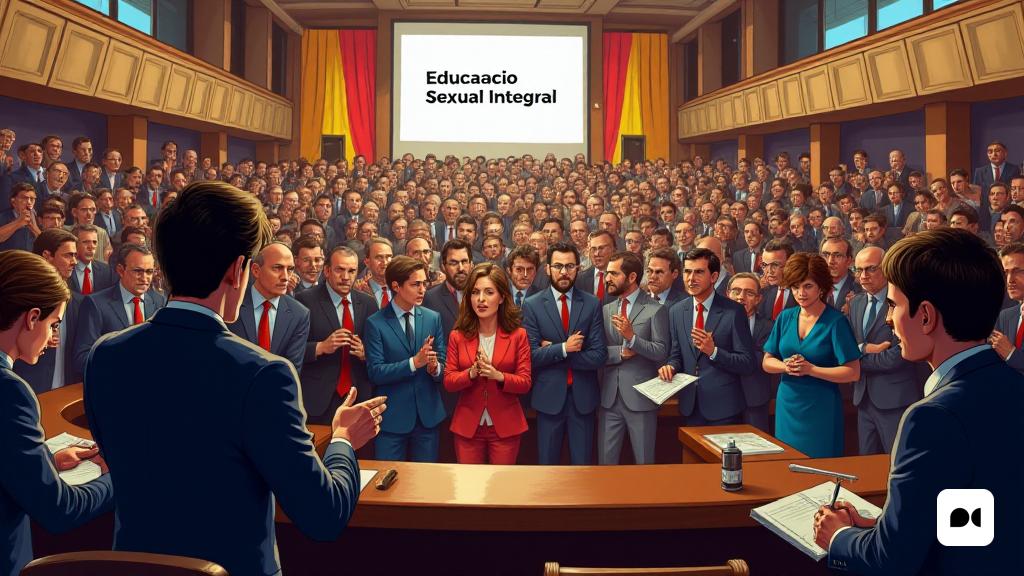A controversial debate on the educational horizon
The recent parliamentary session in Catalonia has evidenced a controversy that has passed through many media. The PSC, ERC, Commons and the CUP parties have supported an initiative that seeks to introduce comprehensive sex education in the first years of elementary and elementary education from the academic year 2025-2026. This decision has led to a forceful reaction by the opposition, represented by the PP and Vox, who have positioned themselves against this measure.
A commitment to history
The proposal to introduce sex education in classrooms is not new; It had already been contemplated by the previous ERC government in the decrees of 2022 and 2023. Now, the PSC is re -eliminating this initiative, which they promise effectively. This action not only reaffirms the continuous support of the PSC in the government of Pere Aragonès, but also emphasizes the influence of ERC and the commons on the configuration of educational policies that generate debate.
Critical voices and concerns of the opposition
The leader of the PP in Catalonia, Alejandro Fernández, has stated his disagreement forcefully, claiming that children should be protected from these issues. For its part, Vox has labeled the measure as ‘disgusting’, threatening to strongly oppose its implementation. This reaction is not isolated, but is part of a broader debate on sex education in Spain, which has been marked by the proposal of ‘Parental’ that Vox presented in the past.
Arguments in Favor of the New Initiative
Proponents of this proposal argue that comprehensive sex education is essential for children training, starting from an early age. The PSC is committed to an ‘affective -tender’ education for children from three to six years old, with the aim of fostering the individual’s individual development of restrictive gender roles and promoting healthy relationships based on respect. It is also noted that this education can help prevent unwanted pregnancies and sexually transmitted infections, as well as identify and prevent abuse.
Critics of the educational approach
Despite the arguments in favor, the opposition considers this measure to be a form of ideological indoctrination. PP Member Montserrat Berenguer admitted the importance of sex education, but emphasized the need to adapt the content to the age of children and criticized the lack of resources focused on the prevention of sexual abuse. Julia Calvet de ERC expressed concern about the emphasis on childhood sexuality, asking to avoid confusing education with indoctrination.
Final reflection on the future of sex education
As this proposal is presented, society faces a fundamental debate on what proper and necessary sex education means. The reaction of the different sectors of politics and society will be key to defining not only the education of children, but also the way that manages sensitive topics in an educational context. It is vital to consider both the rights of children and the concern of parents in a debate that promises to be long and intense.

